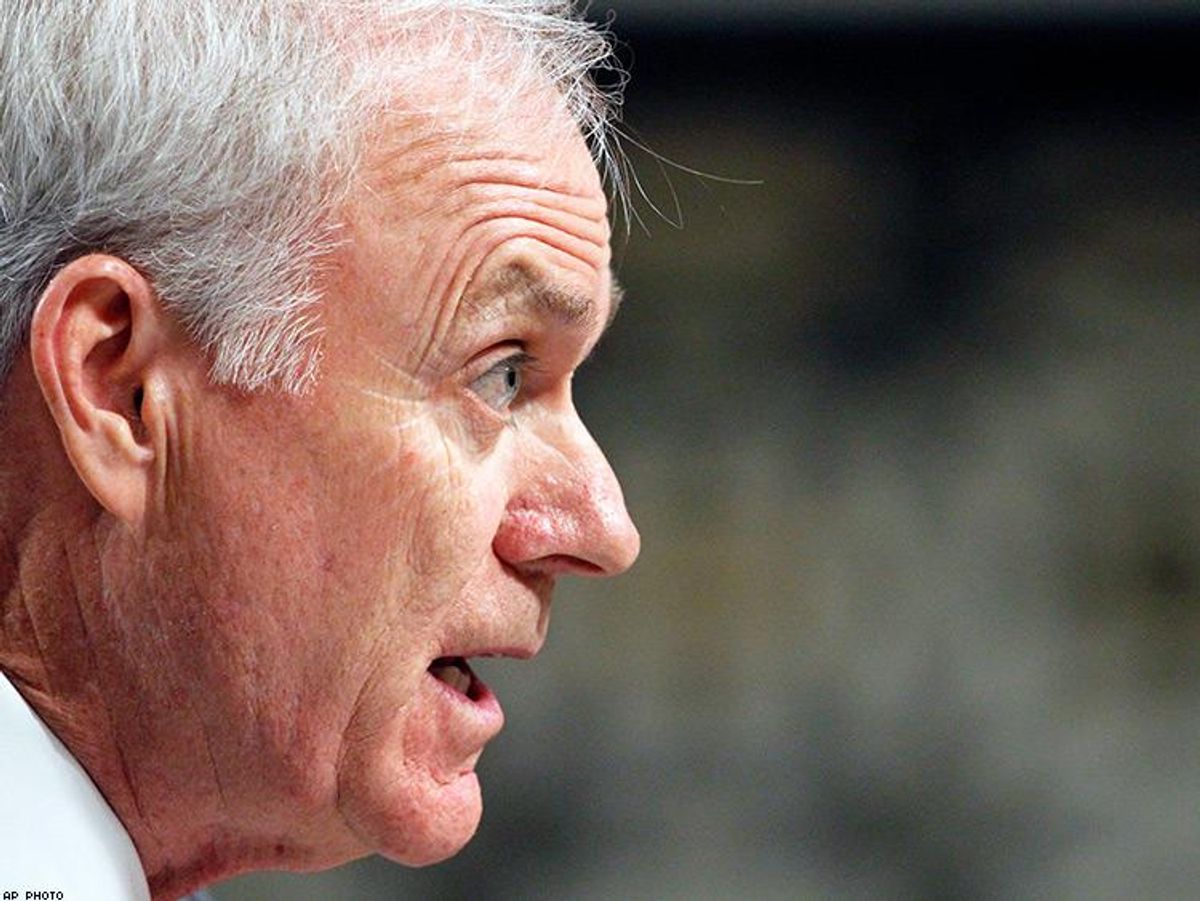Secretary of the Navy Richard V. Spencer said Thursday he'll follow any orders relating to the announced ban on transgender people in the military, but he appeared to disagree with the ban.
"We will process and take direction on a policy that will be developed by the secretary [of Defense with] direction from the president -- and march out smartly," Spencer, a former Marine aviator and businessman, said while visiting Naval Station Norfolk in Virginia, reports the Daily Press of Newport News. "As I said before, on a fundamental basis, any patriot that wants to serve and meets all the requirements should be able to serve in our military."
During his confirmation hearing last month, Spencer at first seemed opposed to changes to social policy in the military, saying it shouldn't be a "petri dish for social experiments." But then he elaborated, saying changes should be implemented consistently across the armed forces, with care taken to make sure they don't undermine the military's mission.
"I totally believe that policy [changes] should be developed on the [Department of Defense] level, and then discussed and socialized and deployed and then obeyed," he said at the time, as reported by USNI News. "We have to work together, including all our service people, to make sure that they are given what they need, whether that be spiritually, whether that be psychologically, whether that's materialistically, to fight forward, so readiness is the key and lethality is the product."
Another service leader, Adm. Paul Zukunft of the Coast Guard, has also spoken out against the ban, saying he had told a trans service member, "I will not turn my back" on her and her colleagues. Also, 56 retired generals and admirals have written an open letter opposing the ban.
Donald Trump, who announced the ban via Twitter July 26, touted it as "a great favor" to the military during a news conference Thursday. His staff has reportedly prepared guidelines for Defense Secretary Jim Mattis on implementing the ban, but sources have told the Washington Blade that implementation is likely on hold given the tensions between the U.S. and North Korea.













































































